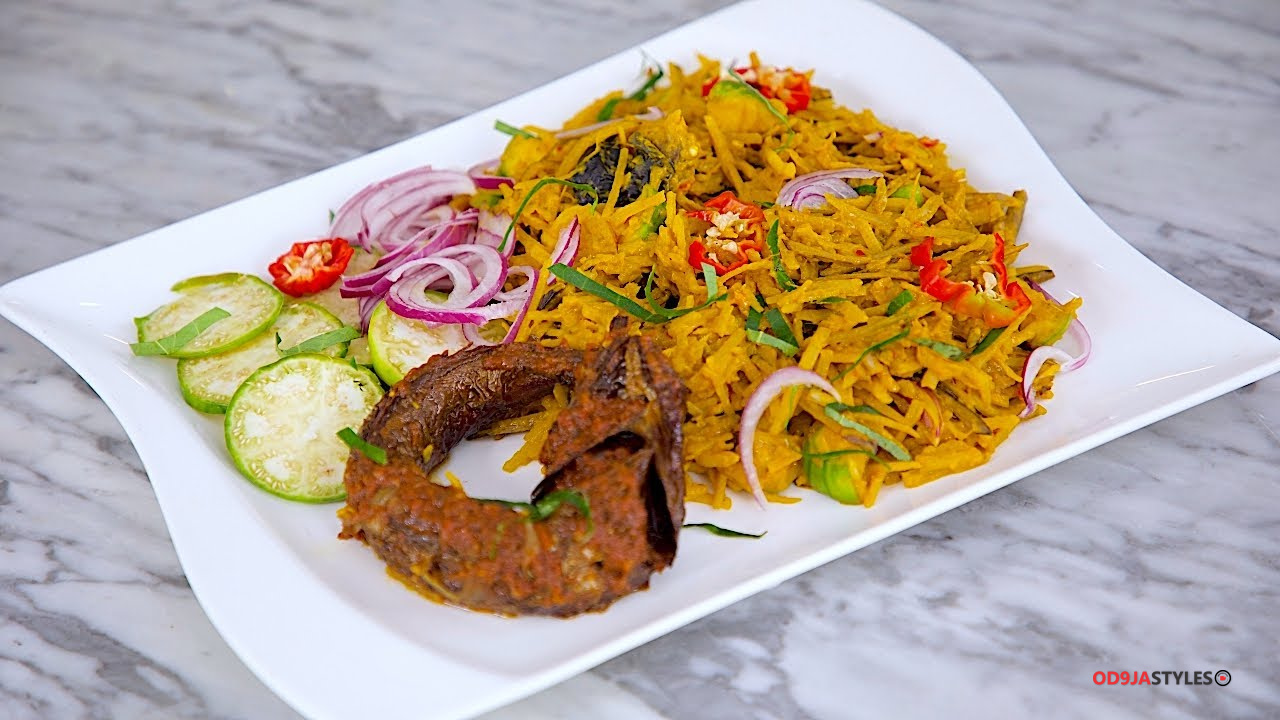African salad, also known as Abacha, is a popular delicacy in the Igbo tribe of Nigeria. It is a traditional dish that has been passed down from generation to generation. Abacha is made from cassava, which is a root vegetable commonly found in Africa. This dish is popular for its unique taste, texture, and aroma. It is often served as an appetizer or a side dish at parties and events. In this article, we will explore how to make African salad (Abacha) step by step.
Ingredients:
- 2 cups of Abacha (dried shredded cassava)
- 1 tablespoon of edible potash
- 1 teaspoon of baking soda
- 1/2 teaspoon of salt
- 1/2 teaspoon of ground crayfish
- 1/2 teaspoon of ground pepper
- 1 small onion, chopped
- 1 tablespoon of palm oil
- 1 tablespoon of ground utazi leaves (optional)
- 1 teaspoon of ground ehuru seeds (optional)
- 1/2 cup of ugba (ukpaka or oil bean)
Preparation:
- Soak the Abacha in cold water for about 10 minutes until it is soft and pliable.
- Dissolve the edible potash in warm water and filter out any residue.
- Mix the filtered potash water with the baking soda and stir well.
- Pour the mixture over the Abacha and stir until it is coated evenly.
- Rinse the Abacha thoroughly in cold water and drain the excess water.
- Place the Abacha in a bowl and add the salt, crayfish, and ground pepper. Mix well.
- Add the chopped onion and palm oil to the bowl and mix well.
- Add the ugba (ukpaka or oil bean) to the bowl and mix well.
- If you choose to use the optional ingredients, add the ground utazi leaves and ehuru seeds to the bowl and mix well.
Your African salad (Abacha) is now ready to be served! You can garnish it with some sliced vegetables, such as tomatoes and onions, or serve it as is. It is often served with roasted fish, fried plantains, or other side dishes.
Tips:
- Make sure to rinse the Abacha thoroughly after soaking it to remove any dirt or debris.
- Use a strainer to filter out any residue from the potash water before mixing it with the baking soda.
- If the Abacha is still too hard after soaking, you can boil it for a few minutes until it becomes soft.
- You can adjust the amount of pepper and other spices to suit your taste preference.
- You can store the leftovers in an airtight container in the refrigerator for up to three days.
Conclusion: Making African salad (Abacha) is easy and simple. With the right ingredients and preparation, you can enjoy this delicious dish in the comfort of your home. This dish is not only tasty but also nutritious as cassava is rich in carbohydrates, fiber, and essential vitamins and minerals. So why not give it a try and impress your friends and family with your cooking skills!















